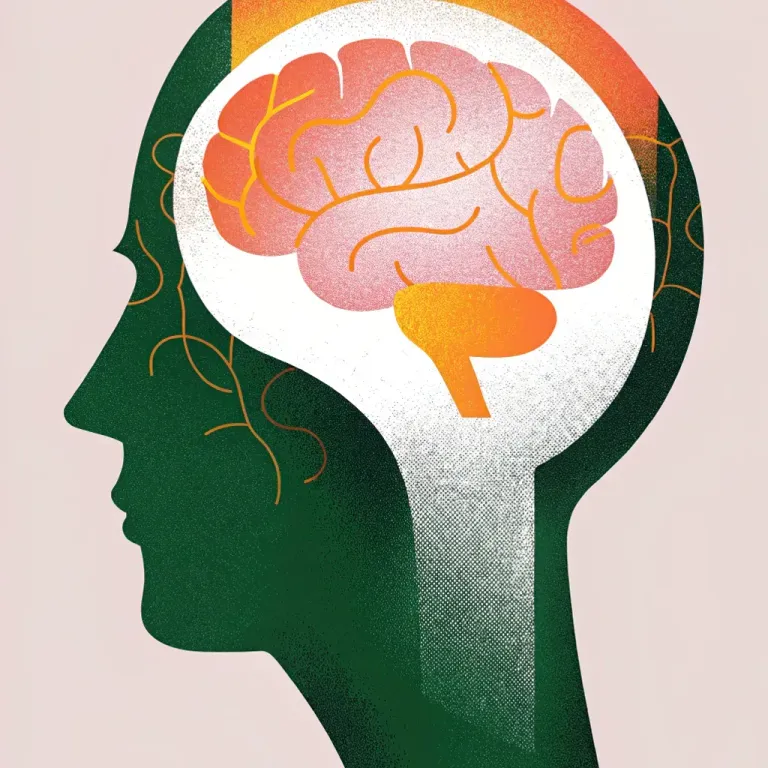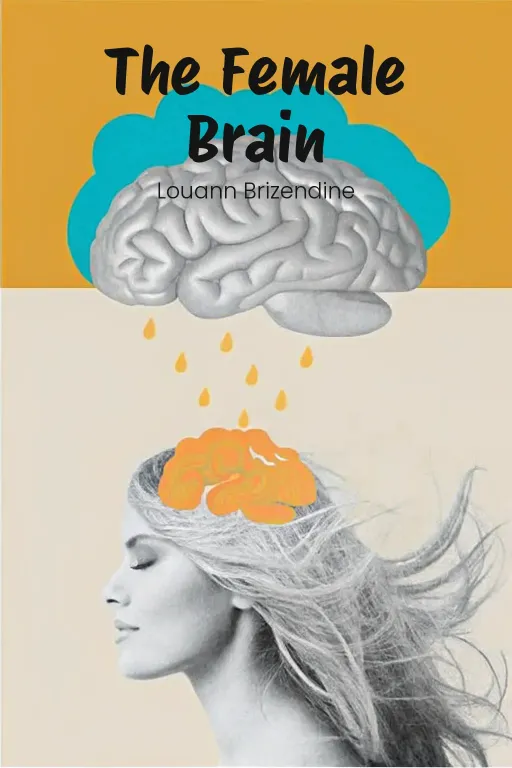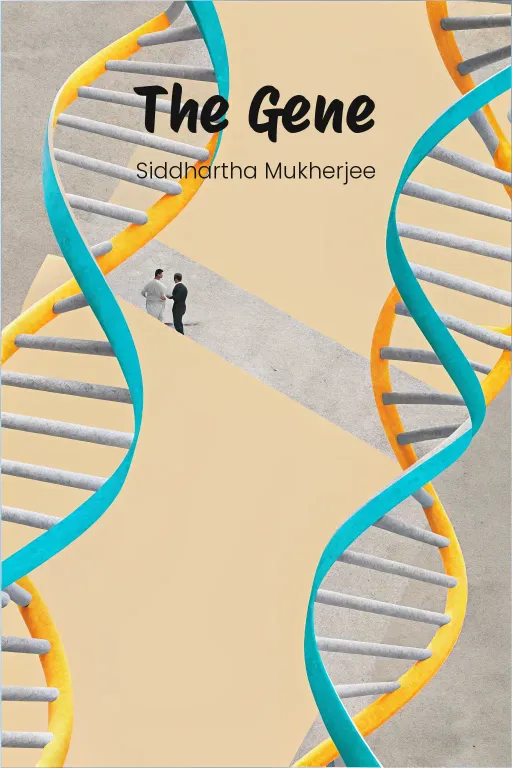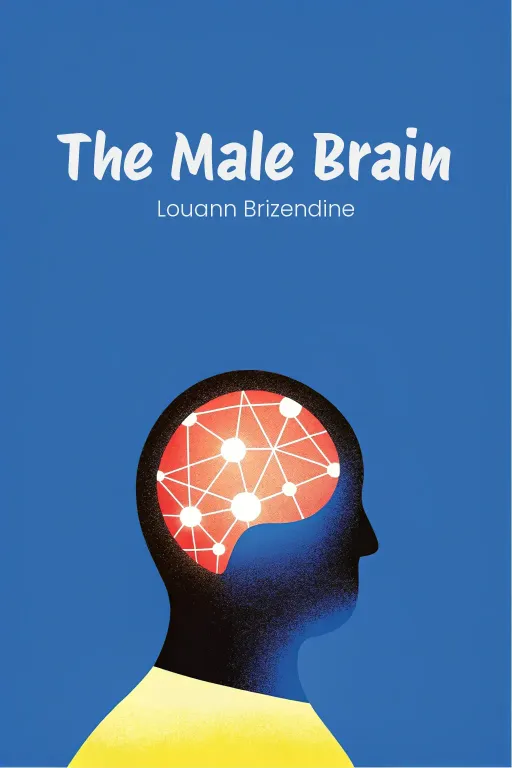
Decoding the Male Mind: Beyond "Boys Will Be..."
Podcast by The Mindful Minute with Autumn and Rachel
A Breakthrough Understanding of How Men and Boys Think
Decoding the Male Mind: Beyond "Boys Will Be..."
Part 1
Autumn: Hey everyone, welcome back to the show! Ever wonder why some boys just “have” to turn any old stick into a sword, or why some dads turn bedtime into Wrestlemania? Today, we’re cracking open the code of the male brain – what’s driving these behaviors and, more importantly, what does it all “mean”? Rachel: Yeah, because as much as we might want to just write it off as "boys being boys," it's gotta be more complicated than that, right? There's a mix of biology, learned behavior, and even what society expects. And, heads up, it's way more complex than you probably think. Autumn: Exactly! We're diving into some really fascinating stuff today, inspired by Dr. Louann Brizendine's book, The Male Brain. She digs into how hormones specific to men, like testosterone and vasopressin, shape everything from how they take risks to how they process emotions. Plus, she explores how the male brain changes as they go through life – childhood, young adulthood, becoming a father, and so on. It's all about understanding behavior at its root, biologically speaking, while still recognizing how much our culture and environment play a role. Rachel: So, here’s the game plan for today. First, we're decoding the blueprint – how testosterone and other hormones kind of "hardwire" the male brain for certain traits, like aggression and a love for risk. Then, we'll fast-forward and see how those traits actually show up in real life – in friendships, fatherhood, all that stuff. And finally, we're gonna talk about how breaking free from old stereotypes can help “everyone” – men, women, kids – build better, healthier relationships. Autumn: Think of the male brain like a house. We're starting with the foundation – the biological stuff. Then we're looking at the actual design – the behaviors that come out of it. And, finally, we’re asking ourselves how we can remodel the whole thing to make it a better fit for modern life. Rachel: Remodeling masculinity, huh? Sounds like a fixer-upper! I bet there are a few walls we're gonna want to tear down. Alright, let’s get started.
Biological Foundations of the Male Brain
Part 2
Autumn: Okay, so picking up where we left off, let's really dive into the biology of the male brain. It’s fascinating, actually, especially starting with something incredible: how testosterone starts shaping the male brain even “before” birth. Rachel, did you know that by the end of the first trimester, testosterone surges are already laying the groundwork for things like risk-taking and competitiveness? Rachel: Wow, I didn't realize it started “that” early. So, these tiny little humans are already getting wired for, you know, roughhousing and aggressive.. board games? Autumn: Pretty much! Testosterone kicks off a process that really influences how the brain is built. One key area is the amygdala, which is tied to emotional reactions and instinctive behaviors. It essentially primes the brain for action-oriented stuff – like aggression, sure, but also problem-solving. Rachel: Ok, hold up. I get the amygdala’s role in aggression and how that ties into the whole "rowdy boy" stereotype. But does it also explain why boys seem drawn to… I don’t know… moving things? Like they just “have” to push toy cars down ramps. Autumn: Totally. Studies show that even newborn boys often show a noticeable preference for objects in motion - like a spinning mobile - compared to faces. Of course, it's not a universal thing, but it's likely linked to how testosterone influences the neural circuits for spatial awareness and physical coordination. Early on, their brains are almost wired to explore and manipulate their environments through movement, which then sets the stage for risk-taking and action-based learning. Rachel: Interesting. So, is this where the whole nature vs. nurture debate really kicks into high gear? Like, hormones wire the brain for action and competition, but how much of “that” is reinforced by our culture? Do we hand boys the toy trucks while steering girls towards dolls... or are we just working with what's already there, biologically? Autumn: It’s a combination. You've got biology setting the foundation, like testosterone shaping neural pathways for physicality. But then cultural practices come in and amplify some tendencies while maybe suppressing others. I mean, if a boy's natural inclination for action-oriented play is celebrated while his emotional expressions are downplayed, you create this feedback loop that just reinforces those traits even more, right? Rachel: Right, so basically, we might not be handing boys a completely blank slate when they're born, but we're definitely holding the paintbrush. Speaking of which, let’s talk about emotions. You mentioned that male infants are actually “more” emotionally reactive than females. How does “that” fit into the narrative? Autumn: It’s fascinating, isn’t it? Male infants often respond more intensely to distress - loud noises, being startled, things like that. They also tend to cry longer and harder. This heightened emotional reactivity is a biological trait, not necessarily a cultural thing. The difference really lies in how “we”, as caregivers or as a society, respond to it. While girl babies are often soothed and encouraged to express their feelings, boys are sometimes expected to "toughen up" from a pretty young age. Rachel: So what happens when you've got this baby boy who's biologically wired to cry harder but is effectively told, "What are you whining about?" Is “that” where those "emotionless man" stereotypes start to take root? Autumn: Exactly. When boys' emotional responses are dismissed early on, it creates a disconnect between what they feel and what they're allowed to express. That narrative – "emotions are for girls" – not only limits boys' emotional growth, but it also undercuts their natural capacity for emotional depth. Boys are just as complex emotionally, if not “more” so in some ways, because they're navigating these intense early responses. Rachel: Hmm, I have to say, the idea of little boys being these emotional powerhouses who cry harder and love deeper is actually kind of touching. It makes me wonder though: how do you channel that capacity in a way that nurtures it rather than stifles it? Autumn: It's really about acknowledging their emotions and teaching them to name what they're feeling – frustration, sadness, even excitement. Parents and educators can model empathy without labeling boys as "too sensitive." Here's the thing, understanding these tendencies biologically can help caregivers adapt their approach! For example, since boys may take longer to self-soothe, giving them extra time to calm down rather than rushing to jump in and fix the problem right away can make a world of difference. Rachel: Yeah, that makes sense. It's like you're giving them the tools to handle their emotions in a healthier way, rather than just sending the unspoken message that they aren't allowed to feel. Autumn: Right! So next, let's transition to how these biological influences also show up in early play behaviors. That's another really telling aspect of male brain development. It's not just emotional and spatial circuits, right? Testosterone also guides behavior in ways we see happening on the playground every day. Rachel: Ah, yes. The classic free-for-all of tricycle races and turning every activity into a competition. I assume science backs up why boys often seem to prefer the, shall we say, rough-and-tumble route? Autumn: It does! Hormonal influences do predispose boys to more aggressive, action-driven play behaviors. Studies - including ones analyzing preschool settings - show boys leaning toward competitive or physical games. Like, they'll decide that someone needs to win the "best swing" game. Girls, on the other hand, more often engage in cooperative, nurturing types of play, like arranging tea parties or role-playing caregiving tasks. Rachel: Okay, so... in these scenarios, is testosterone basically the internal game developer programming boys to invent "king of the mountain" by default? Autumn: Not exactly "default," but... close! Testosterone amplifies competitiveness and dominance-related neural circuitry. And when you combine that with societal encouragement, like rewarding boys for winning, it creates a behavior pattern that often continues through life. Rachel: But here's my question: if these rough-and-tumble traits come so naturally to some, what happens to the boys who “don't” quite fit the mold? I mean, I imagine not every kid is all-in for dodgeball and tug-of-war. Autumn: That’s a crucial point. Boys who don’t gravitate toward high-energy competition can feel ostracized, especially in environments where those tendencies are expected or celebrated as "normal." These boys might prefer quieter, cooperative games, or creative outlets, which are just as valid, but are less emphasized culturally at times. Really recognizing this diversity in preferences and temperaments is key in creating inclusive spaces for “all” boys to thrive. Rachel: Got it. So understanding both the biology and the broader cultural script gives us more freedom to meet boys where they are, rather than forcing them into stereotypes. This is like cracking open a user manual for the male brain—except instead of “some assembly required,” it’s, “here’s what makes this model unique and adaptable.” Autumn: Precisely! Understanding all these foundations not only helps us address misconceptions but also empowers us to guide boys - whether they're the kings of the playground or the gentle storytellers standing at the sidelines - to grow into their best selves.
Social and Emotional Dynamics Across Life Stages
Part 3
Autumn: Understanding the biology is key, and it really sets the stage for seeing how these traits play out in real life. That brings us to today's main focus: social and emotional dynamics across life stages. We're basically looking at how tendencies like competitiveness, emotional reactions, and even our nurturing side evolve from childhood to old age. And of course, we'll consider how society shapes all of that. Rachel: Perfect! So, Autumn, let's start with boyhood. It seems like every little playground argument is actually a huge deal. You know, biology meets culture, and suddenly fighting over a toy tricycle turns into something way more significant. What's actually going on there? Autumn: Boyhood is fascinating, isn't it? What seems like just rough play is often super important learning. Take the example from The Male Brain, where Louann Brizendine talks about David and his friends fighting over a tricycle. Biologically, testosterone is fueling the physicality and competitiveness. But it's not just hormones; it's about learning social hierarchies and how to handle emotions through play. When David wins the tricycle, he's briefly solidifying his spot, which builds confidence. And the kids who lose? They're learning to bounce back and adapt. Rachel: Right, so David's big tricycle win wasn't just about power; it was practice for the office later in life. But what about the kids who don't win? Is there a lesson in losing, or does it just reinforce a pecking order that leaves some kids feeling down? Autumn: There's definitely a lesson in losing. These moments, whether it's the tricycle or a game, help kids learn emotional regulation. They start to process disappointment, regroup, and try again. But, this really only works when the environment is safe and supportive. If it's all about winning or if aggression goes unchecked, it can push kids away who don't fit the mold. Rachel: Because not every kid is wired to be the alpha, right? Some kids might not even want the darn tricycle! Autumn: Exactly! That’s why it’s crucial for parents and educators to encourage different kinds of play. Action-driven competitive play might click with some, but others might prefer imaginative play. When everyone feels valued, they explore social skills in ways that feel right to them. Rachel: I get you. So, that competitive play isn't just boys being wild; it’s them figuring out relationships—who leads, who follows, and how to work together. Now, let's move into adolescence, where friends and emotions take over. What changes when boys hit their teens? Autumn: Ah, adolescence, where biology is mixed with drama! Teenage boys have a massive testosterone surge, sometimes 20 times higher than before. This makes them super sensitive to what their friends think. Plus, their prefrontal cortex, which handles impulse control and planning, is still developing... So you have high emotions and poor control. It’s quite a mix! Rachel: So, teenage boys are basically running on a cocktail of hormones and an unfinished brain? That explains so much. Autumn: Exactly! Brizendine mentions a teen trying to fit in by sharing snacks, like Chex Mix, to get in good with the popular crowd. It sounds silly, but to him, it's not about the snacks, it’s about solidifying his social standing. The male brain during adolescence is wired to prioritize that kind of validation. Rachel: And the emotional misunderstandings! I read that teen boys often mistake neutral faces as hostile. It’s not just high emotions, they're misreading the room. Autumn: Yes, the testosterone makes them overreact, so they're more likely to see a challenge where there isn't one. This goes with their ability to interpret emotions. If they misread expressions as hostile, it can cause conflicts. That's why emotional education is so critical during these years. Rachel: Let me see if I’ve got this straight. Teenage boys are in this perfect storm: Impulsive brains, crazy testosterone, misreading faces, and then we say, “Why can’t you act your age?” Autumn: Precisely! That's why we need to help them navigate these behaviors instead of judging them. This means teaching them body language, facial cues, and tools to manage emotions. These are not just "nice-to-haves”; they're essential for healthier relationships down the line. Rachel: So, if we invest in emotional education now, we’re building a bridge to more complex adult relationships. Speaking of adulthood, let’s talk fatherhood. How does the male brain change when diapers and lullabies come into play? Autumn: Fatherhood is amazing! Biology and emotions come together and challenge how we think about masculinity. Becoming a dad actually changes men biologically. Oxytocin, the bonding hormone, skyrockets, strengthening pathways linked to nurturing. Rachel: So, we hear about "maternal instincts," but dads get their own hormonal boost? Wow. Autumn: Definitely. Brizendine says this prepares fathers to connect emotionally with their kids. Simple things like holding them activate brain circuits tied to attachment and empathy. This rewiring helps men see caregiving as fulfilling, not just a duty, but a source of joy. Rachel: That’s wonderful, but society doesn’t always encourage this. Dads are often seen as breadwinners, not nurturers. Autumn: Exactly, that’s a big problem. When men feel pressured to conform to old stereotypes, they miss out on the benefits of parenting. Dads who break free have a lasting positive impact on their kids and their own emotional health. Policies like longer paternity leaves could help normalize the nurturing roles. Rachel: Agreed, it’s happier dads, healthier kids, and a stronger society. Now, what about older men? How does the male brain evolve later in life? Autumn: In older age, we see a shift toward generativity. Testosterone decreases, oxytocin increases, boosting the desire for connection. Older men focus less on careers and more on relationships, whether with grandkids or their communities. Rachel: So, tricycle David might become Grandpa David, tearing up at his grandson’s T-ball game? That’s beautiful. Autumn: It really is. Men’s emotional priorities realign, emphasizing family and relationships. But, older men might face isolation if they lose social connections. So encouraging community engagement can help maintain their emotional and social well-being. Rachel: What a journey—from tricycles to T-ball to leaving a legacy. Seems like the male brain spends a lifetime evolving toward connection.
Implications for Relationships and Societal Growth
Part 4
Autumn: Recognizing these patterns really highlights the need for empathy, doesn't it? When we look at how male neurobiology impacts relationships and society, it's obvious that a deeper understanding can help us challenge outdated masculinity and build healthier emotional connections. Rachel, where should we even start? How about tackling one of the biggest hurdles: gender stereotypes? Rachel: Definitely a good place to start. Stereotypes die hard, and it feels like these get ingrained early on. Boys are often painted as these emotionally reserved problem-solvers, not feelers. But like we've touched on, that simple definition of male emotion just doesn't hold up. So, how do these stereotypes form and why do they stick around, in your opinion? Autumn: That's such a great question. Gender stereotypes often box boys into really rigid emotional roles from such a young age. We're talking about the whole idea that showing vulnerability is somehow the same as showing weakness—which goes against a boy’s natural emotional wiring to begin with. Take Tim, that dad we mentioned. He's bonding with his son through playful teasing and wrestling which, yeah, seems classically masculine, but it's actually a highly emotional exchange. The interesting that it really challenges this idea that fathers are emotionally detached. Research even shows being that involved can build resilience and empathy—qualities we don't often associate enough with father-son relationships. Rachel: Right, so Tim's wrestling matches are more than just a good way to tire out his kid. They're setting the foundation for deeper emotional connections later on. But, if dads like Tim are already kind of rewriting the rules, why do we still see so much hesitation around male emotional expression in general? Autumn: Well, that resistance comes from how deeply ingrained these stereotypes are in how we see the world. Even when we do see behaviors with clear emotional depth, like problem-solving or taking risks, they're usually misread as being emotionally detached. Like, testosterone plays a really interesting dual role, right? It's linked to aggression, sure, but also to quick thinking under pressure. So when men in relationships focus on solutions during a fight, it's often taken as them being dismissive. But often it’s actually an oddly expressed attempt to offer some support or defuse the tension! Rachel: Ah, so the classic "let me fix it" response isn't necessarily indifference. It's caring, but in a very testosterone-driven, "get it done" kind of way. That really flips the whole narrative, doesn't it? Autumn: Exactly. If both sides in a relationship can just learn to recognize the biological reasons behind it, it completely changes things. Instead of seeing emotional neglect, people can see it as a specific communication style. And obviously, men can learn to pause and check in with emotions before jumping straight to solutions. If we bridge those gaps with empathy, it can totally change how relationships work. Rachel: That's a really powerful point. But moving past personal relationships for a second, how do we even begin to take down these larger, societal stereotypes? It's one thing to break free within a family, but changing what society expects? That seems like a much bigger challenge. Autumn: It's true, big changes take real effort, but we do have tools. Things like emotional education programs in schools can really encourage boys to talk about their feelings early on, fighting that culture of suppressing feelings that often hides male vulnerability. Then redefining masculine norms through things like paternity leave policies can help shift what society things about caregiving and emotional openness. These kinds of programs don't just normalize men being in traditionally "emotional" roles, but create lasting changes for the long term. Rachel: Okay, I like starting in schools. Teaching boys emotional literacy early on is definitely planting the seeds for a more connected adulthood. But it almost feels like we're putting a lot of the responsibility on men's shoulders here, which I understand in some ways, but what part do partners, parents, coworkers play in fostering this change? Autumn: Absolutely! This isn’t just a one-way street, everyone needs to be on board. Like, parents, teachers, partners... they all have to adjust how they see things too. When a boy or a grown man shows vulnerability, those around need to respond with support rather than criticism. Can you imagine how different things would be if a boy was told it was okay when expressing fear or doubt, instead of being told to "man up"? Rachel: You're right, it definitely takes all of us. So, what are some of the ways society benefits when we start shifting these balances? When we successfully redefine masculinity to include vulnerability, we aren't just helping individual men, we're reshaping our entire culture. Autumn: Definitely. Like, encouraging men to connect with their nurturing side really strengthens families. Picture a workplace where fathers taking paternity leave is just seen as normal, or even something to celebrate. It would send a message that caregiving is something we all share. Or imagine a generation of boys who feel comfortable talking about their deepest feelings. That alone would have a significant impact in male mental health, including lowering rates of depression and isolation among men. Rachel: So, by creating space for emotional honesty, we're actually addressing a lot of social problems that come from being emotionally rigid. We're talking strained relationships, mental health crises, you name it. It's like we're finally reimagining "strength" not as being this unemotional rock, but as being open and connected. Autumn: Totally! And that new idea of strength actually benefits everyone. Men and women understand each other better, which leads to better communication in relationships, better teamwork in communities. When we can expand on society's ideas of masculinity, society as a whole becomes more accepting and supportive. We shift from trying to fit a certain mold to celebrating who we are as individuals, so everyone can reach their full potential. Rachel: It seems like understanding male neurobiology is just the first step, then. It definitely gives us a framework for empathy, but those insights can only take you so far. In the end, what we need are broader dialogues and actions to really transform that understanding into something that's practical, sustainable, and compassionate. You agree? Autumn: 100 percent. It's a multi-layered approach, where we blend those core biological insights with active shifts in our culture to create lasting change — both for us as individuals, and for society as a whole.
Conclusion
Part 5
Autumn: Okay, so today's chat really took us on a journey through the male brain, didn't it? We started with the biological stuff—you know, how testosterone and other hormones shape things from the get-go. Then we moved onto how fatherhood and aging play a role. And finally, we looked at how those natural tendencies get all mixed up with cultural expectations, from the schoolyard right up to adult relationships. Rachel: Yeah, it's fascinating, isn't it? And what struck me is how much room there is to push back against the usual stories we tell about masculinity. Like, whether it’s acknowledging that boys can be super emotionally sensitive, seeing competitive games as more than just roughhousing, or really valuing the emotional side of being a dad, there's space to grow at every age. Autumn: Precisely. The big takeaway for me is that the male brain isn’t just one thing; it's adaptable, emotional, and, honestly, quite complex. By getting that there are biological factors and cultural pressures, we can help create a world where men feel okay being vulnerable and where connection is “really” what matters. Rachel: So it makes you think, doesn’t it? Are we, as individuals, as parents, as a society, really supporting the full range of emotions in boys and men? And if we’re not, what little things can we do at home, at school, at work to challenge those old stereotypes? Autumn: Absolutely, because real change comes from understanding. It's about being willing to listen, question our own assumptions, and then take action. Let's rewire this narrative, insight by insight. Rachel: Well said, Autumn. Alright, everyone, that’s our show for today. Until next time, remember that understanding the brain can do a lot, but putting what we learn into practice is what makes a difference.









